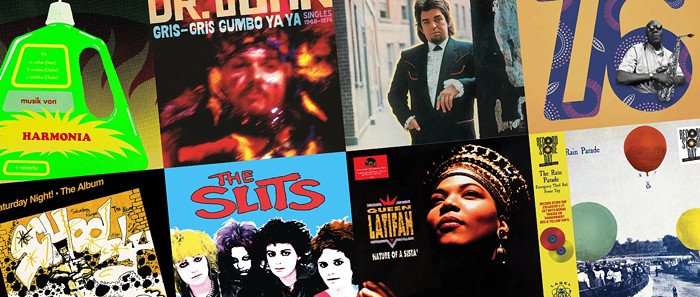Wed May 9, Graceland, 381-3094.
You say throwback, I say rip-off. You say rip-off, I say throwback.
At any rate, Of Montreal is one of these two. The band does what it does very well, and what it does very well is '60s pop, hence "throwback" and "rip-off." The funny thing is, it doesn't really matter. Of Montreal is all about stealing from its predecessors, to be sure (the Beatles, of course, among others), but Of Montreal has somehow managed to create a sound all its own, one that comes across as completely original despite all the thievery (as opposed to, say, Oasis, which is just plain theft).
To explain Of Montreal's sound (by using mathematics, for no apparent reason):
Sgt. Pepper's + a hint of New Orleans jazz -- * = Of Montreal.
The reader should note that (a) the above equation makes very little sense, and (b) neither does Of Montreal. Case in point: the absurd 18-minute piano epic "The Hopeless Opus or the Great Battle of the Unfriendly Ridiculous" that closes out the latest record. Long, rambling, and evidently serving some sort of mysterious purpose, "The Hopeless Opus" completely changes gears from the record's previous 21 songs, tossing aside the inspired '60s pop cheeriness that makes up Coquelicot Asleep in the Poppies: A Variety of Whimsical Verse (brief titles obviously not being Of Montreal's strong suit) in favor of something serious, or serious-sounding, or supposedly serious-sounding. Whatever. The point is, Of Montreal is fucked up, and in the best way possible.
This, of course, should come as no surprise given that the band hails from Athens, Georgia, home of the Elephant 6 (Olivia Tremor Control, Neutral Milk Hotel, Elf Power, etc.) and place where pop sensibility somehow manages to transform from simple to retarded (again, in the best way possible). Of Montreal's songs are built around classic pop foundations, then continually added and re-added to until they are almost unbearable. "Almost" is the operative word here, as Coquelicot is something close to a masterpiece, yet, at the same time, incredibly annoying on more than one occasion. There are moments when you are giddy, and others when you wish the band would just shut up, which is perhaps the whole point. No one ever said pop music had to be clean and simple, after all.
A list (or, at least, a partial list) of all the instruments used on Coquelicot should shed some light on just what I mean:
INSTRUMENTS USED ON THE LATEST OF MONTREAL RECORD:
Candy cane clarinet, lap steel guitar, bass, Crumar, drums, bongos, fuzz bass, acoustic guitar, piano, autoharp, electric guitar, vox synth, cello, keyboard, clarinet, snake charmer loon(!), xylophone, violin, trombone, accordion, flute, nylon string guitar, banjo, oboe, toy piano, harpsichord, trumpet, e-bowed guitar, marimba, organ, theramin, kazoo....
The use of so many instruments is, for the most part, completely unnecessary, especially for a pop record, but therein lies what makes Of Montreal so interesting. The layers upon layers of sound, all crammed together (think of a full garbage can that you are desperately trying to stuff one last full bag into, mashing it down, stomping it with your feet until you somehow manage to get the lid on) make each song exciting to listen to, then easily forgotten. There are many catchy hooks, to be sure, but once those hooks are over, they disappear, which, in a way, is what pop music is all about. Even those songs with, say, only two or three instruments never lodge themselves within your nugget due to the sheer volume of the record as a whole (an argument could be made for the usefulness of a single in this scenario, but even then it's doubtful any of the songs would linger long enough to become annoyingly repetitive in your head, unlike most pop songs [example: the Beta Band's "Dry the Rain," which is not really a pop song per se, but which contains one of the catchiest endings in recorded history, as anyone who has listened to it will attest]).
But, in the end, all this blathering about the band's record and the band's sound comes down to one simple thing: Of Montreal has taken '60s pop and expanded it, inflated it into something all its own. This is one of the truly original bands out there playing today, which is a funny thing for a throwback to be.
Or a rip-off.


















